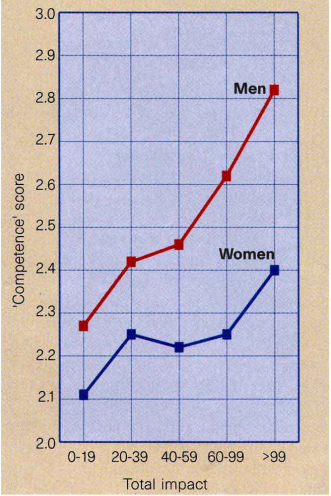DARK researchers launch project on gender and science

Groundbreaking analysis from Wennerås & Wold (1997), showing that men achieved systematically higher competence scores than women for the same scientific impact in Swedish medical research council assessments.
Beate Sløk-Andersen is visiting DARK for the month of June to prepare a research project with DARK staff, Darach Watson, Anja C. Andersen and Jens Hjorth.
Inspired by the work of Wennerås and Wold (Nature 387, 341–343, 22 May 1997), and the impact it had on how seriously gender politics was perceived in science, and following on from our analysis of the first European Young Investigators (EURYI) award (Nature 436, 174, 14 July 2005), we intend to make use of the very large, pan-European resource on women in science that is the European Commission's framework programs.
The results could be game-changing in understanding women in science and has several major advantages:
- it is transnational, covering the European Union
- it covers most scientific disciplines
- it covers many different types of grant applications (early-stage, advanced, individual, networks)
- it allows longitudinal studies, i.e. has more than a decade of data
- the framework programs have state-of-the-art implementation of key fairness measures (outlier evaluation, balance monitoring, gender-balanced panels), and so allows an estimate based on best-practice
The team is working on data access, methodology and applying for grant funding, with the current working title, Making use of the EU framework program data: Gender research at the European level; a major, quantitative analysis.
Contact Darach Watson or Beate Sløk-Andersen for more information.
